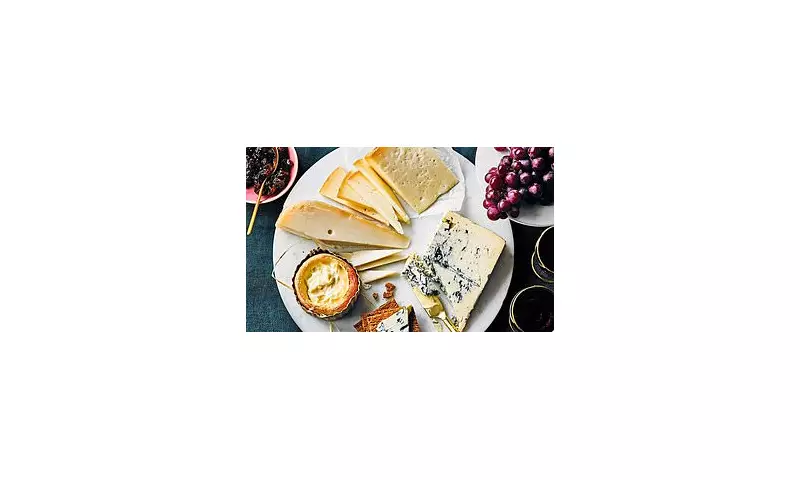
Assembling your Christmas cheese board no longer needs to be a purely indulgent affair. According to Dr Federica Amati, head nutritionist at the pioneering health science company ZOE, many beloved cheeses provide genuine nutritional benefits, from essential protein and calcium to beneficial live cultures that support a healthy gut. Some varieties are even more digestible than commonly believed.
By making a few informed choices, you can create a festive spread that remains rich in flavour while delivering a welcome boost of nourishment. Whether your preference leans towards aged, crumbly classics or softer, lighter styles, there is a place for each on a board that expertly balances pleasure and well-being.
The Healthiest Cheeses For Your Festive Spread
Parmesan, a long-aged cheese, undergoes extensive fermentation which breaks down much of its lactose. This makes it a gentler option for those with lactose sensitivity. It is also rich in live cultures and provides a solid amount of fermented dairy protein.
Wensleydale, a traditional British choice, is an excellent source of protein and calcium. For a more nourishing combination, pair it with fruits like pears, cranberries, or apples to add fibre and polyphenols to your plate.
Cottage cheese is a wonderfully versatile option that is naturally lower in saturated fat than many other cheeses. It is impressively rich in protein, offering around 12g per serving, which helps keep you full and supports muscle repair. Many brands also contain probiotics; look for 'live and active cultures' on the packaging. Be mindful of its sodium content, as with most cheeses.
You might not expect a nutritionist to recommend cream cheese (e.g., Philadelphia), but it can be a surprisingly microbiome-friendly choice as it contains some live microbes. Its soft, mild flavour makes it easy to pair with other gut-friendly snacks like sauerkraut, kimchi, or wholegrain crackers.
Blue cheeses, such as Stilton, are fermented and provide live microbes that can support a diverse gut microbiome, explains Dr Amati.
Red Leicester is excellent for bone health due to its high calcium content. It contains annatto, a natural pigment that gives the cheese its distinct orange colour and provides carotenoids, which are known antioxidants.
Pecorino, fermented from sheep's milk, is another nutritious option teeming with live microbes and beneficial metabolites from the fermentation process.
Goat's cheese is naturally low in lactose, making it easier to digest for most people. Depending on the type, it can contain a variety of probiotics. It's nutrient-dense and satiating, perfect for sprinkling on salads.
Aged Cheddar is a nutrient-dense cheese offering protein, calcium, Vitamin B12, Vitamin A, and Iodine. Its saturated fat and sodium content is on the higher side, so it is best enjoyed in moderation as part of a balanced diet.
Gouda, another hard, aged cheese, is packed with probiotics and essential nutrients like protein and Vitamin K, supporting both gut and bone health.
For a fresher, lighter option, consider Mozzarella. It is generally less energy-dense and lower in saturated fat and sodium compared to many hard, aged cheeses.
Three Cheeses To Enjoy With Caution
It may not come as a surprise that processed American-style cheese slices are best skipped. They contain substantially more sodium than most cheeses, which can impact heart health. Classed as an ultra-processed food, they are often packed with additives and emulsifiers, reducing their natural nutrient content like protein and calcium.
Brie does have some plus points; this nutrient-dense, creamy cheese offers essential B vitamins and calcium. Its gentle fermentation can aid digestion and adds live cultures. However, it is higher in saturated fats, so try to limit the amount you enjoy.
While the sodium content of Boursin is similar to many other cheeses, it has higher saturated fat and a lower protein and micronutrient profile, placing it towards the bottom of the list for the most nutritious Christmas cheeses.
This Christmas, you can confidently curate a cheese board that delights the senses and contributes positively to your health. By choosing cheeses rich in protein, calcium, and live cultures, your festive treat becomes a nourishing experience.






